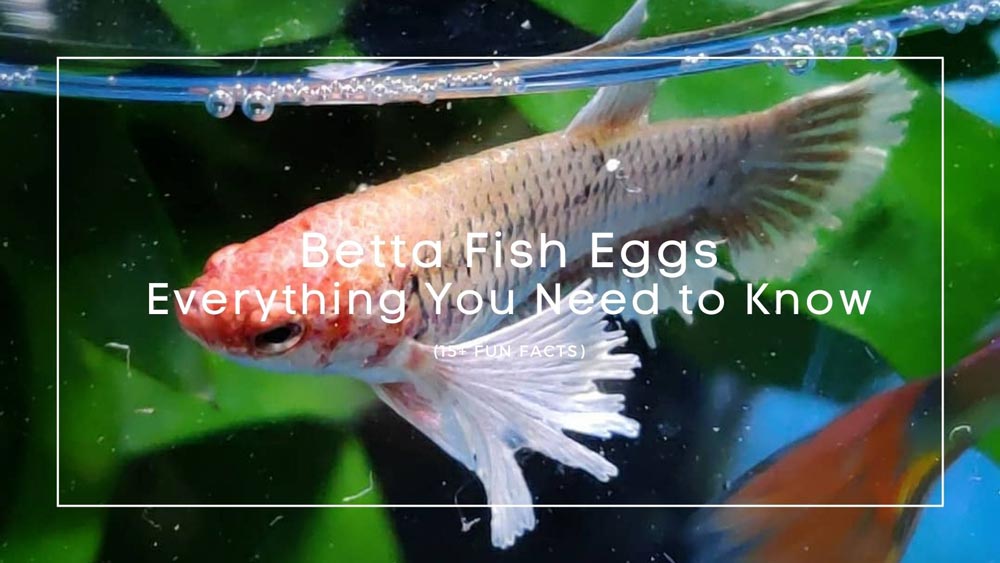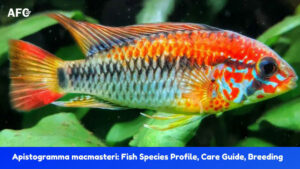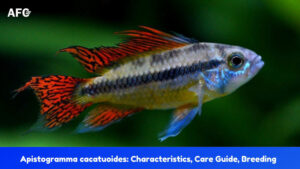As an aquarist, watching your betta fish spawn is probably the most exciting gift of nature.
After all, from nest building to laying eggs, the entire process is interesting and unique in its own way. However, achieving good success rates from the get-go is not that easy; you’ll need preparation.
And for that, it’s important to know all about the Betta fish eggs, including its size, color, and hatching time. That’s why we’re here today with a brief informative guide on everything an aquarist should know about breeding betta fish in a tank.
So, without further ado, let’s begin, shall we?
Here we’ll begin with the basic physical traits of the eggs and fry. And then move on to the roles of both the male and female bettas in the spawning journey. We’ll also highlight the factors, which might affect the hatching time and the number of eggs a female can lay at a time.
Do Betta Fish Lay Eggs or Give Birth?
How Do Betta Fish Eggs Look?
Ideally, a Betta fish egg is a small, white round ball, measuring one mm in size. However, they are not entirely round; rather, they are oval and non-uniform in shape.
On the contrary, the eggs of the mouthbrooder Betta fish are bigger, measuring somewhere between 2 and 3 mm, and they take a longer time to hatch. During the period of development, the eggs swallow a bit to turn more yellowish.
How Long Do Betta Fish Eggs Take To Hatch?
On average, Betta fish eggs take two to three days to hatch, but the mouthbrooder eggs may take longer – even up to 30 days. After hatching, the fry will begin eating from the yolk sack while still depending on the parent for primary care.
It usually takes an additional two to three days after hatching for them to start swimming and become independent. That said, the time Betta fish eggs take to hatch and survive will depend on the following factors.
Temperature
Metabolism and digestion in fish are generally faster in higher water temperatures, affecting how fast the egg will hatch. So, it shouldn’t come as a surprise that betta fish eggs can hatch within 24 hours in temperatures between 79 and 82-degree Fahrenheit. But this doesn’t mean you should breed adult betta fish at these temperatures as they tend to die in warm conditions.
Betta Fish Species
The egg-hatching time may differ depending on the type of betta fish. While bubble-nested betta eggs hatch faster compared to their mouthbrooding counterparts, species like the macrostoma fish eggs might take over a month to hatch, let alone swim freely.
Water Quality
The quality of water will have a significant effect on the hatch rate. And poor water quality could, in fact, damage your betta fish eggs, possibly killing them in extreme cases. This is because of the presence of bacteria, metal, and other harmful substances that may disrupt the biological balance.
How Many Eggs Can A Betta Fish Lay?
The betta fish can produce around 30 to 100 eggs per batch on average; however, females can even lay up to 500 eggs in a single batch. On the other hand, mouthbrooder betta fish only lay around 10 to 20 eggs per batch; after all, the males hatch them in their mouth.
That said, the number of eggs a female can lay depends on the following factors:
Size Or Age
2 to 3 months is when betta fish are sexually mature, but even then, we’d suggest you refrain from breeding them at a younger age. It’s best to wait till the female is fully grown and reaches the male’s size.
Now, the ideal age to spawn Betta fish is around 6 to 8 months, as it’s when you’ll know the size of the full-grown females. They will also be mature enough to lay healthy eggs and handle the male Betta fish.
The female Betta will remain fertile almost their entire life, but eventually, they’ll become less fertile once they grow older (more than 2 to 3 years old). That’s when they’ll produce a fewer number of eggs.
Experience
Experienced betta fish know all about spawning, so if you’re breeding a female that has already spawned numerous times, she’ll more likely produce more eggs. Moreover, when both the male and female fish are experienced, there’s higher chances of fertilized eggs and higher survival rates.
Conditioning
It’s important to condition the Betta fish pair to increase the success rate of producing more eggs. In other words, feed the fish numerous times a day with high protein frozen and live food. Also, encourage breeding and egg production by showing them off to each other.
After all, even though Bettas can produce numerous eggs – not all of them will hatch to become healthy fry. The male usually eats a small part of the spawn to ensure that they can provide adequate care to the remaining Betta fish fry.
In some cases, the inexperienced ones might eat them all, which is normal. To reduce the chances of this, make sure your male Betta gets ample rest in a secure environment.
How Do You Know If The Betta Fish Eggs Are Fertilized?
The only way to ascertain whether or not the Betta fish eggs are healthy is if the batch is showing steady growth with gray spots. You’ll also be able to see the small fish inside the egg within a white yolk sack once it’s close to hatching.
How Often Can Betta Fish Lay Eggs?
Betta fish are highly productive creatures, so it’s no surprise that they can lay eggs every few weeks. But that might not always be the case.
A stressed or worn-out Betta fish may take longer to fill up the aquarium with little Betta fry. Also, the male Betta should be strong and experienced enough to fertilize the eggs.
Where Do Betta Fish Lay Eggs?
Betta fish, primarily the males, build bubble nests as their breeding behavior to create a safe habitat for the betta eggs and fry. And when the pair begins spawning, the male will place the eggs in the nest to care for the hatched fry.
The design and thought behind building these nests stem from how they live in the wild in shallow pools. With a steady environment and ample oxygen supply at the water surface, the nest will help protect the fry, especially during vulnerable days.
They use their breathing organ to build nests by blowing used air to the water surface. Ideally, parts of the water covered with plants and leaves are their favorite spots for building a nest. After all, the branches and leaves will provide extra protection, safeguarding the eggs from getting destroyed.
FAQs:
Can Betta Fish Lay Eggs Without a Mate?
Female betta fish can produce eggs without males, but the eggs won’t be able to hatch. Instead, they’ll rot, leading to the formation of ammonia in the water. While healthy betta females will always carry eggs, they’ll simply absorb and then recreate their eggs without a male.
What Should You Do After the Betta Fish Lays Eggs?
Once the female lays the eggs, remove her, and leave the male inside the tank till the eggs hatch. Then, remove the male as soon as you find that it sees the betta fry as food.
Can Betta Fish Hatch Without a Bubble Nest?
Betta fish eggs can hatch without a bubble nest, but the babies or fry may not survive under normal conditions without it.
How to Know if a Female Betta is Laying Eggs?
If you notice bubble nests floating on the water surface of your tank, it means the betta fish is close to spawning. It will appear like a cluster of small bubbles.
Once the male builds the nest, it will wait for a female to mate with. And after she lays the eggs, it will place them in the nest with the help of its mouth.
How Often Do Mouthbrooder Bettas Lay Eggs?
If you are not prepared to take care of hundreds of little Bettas, breeding mouthbrooders is a better option. They are a different species of Betta fish, which lay bigger eggs that hatch slower. Moreover, they usually lay less than 20 eggs at a time.
Conclusion
That sums up all the information we had to share on betta fish eggs. And we hope this helps you in your Betta fish breeding journey.
Getting to watch small white balls within the bubble-like nest means that the pair has spawned successfully. But always keep in mind that Bettas can produce up to even 400 eggs at once. And while all of them may not survive, there’s still a high chance of raising a lot of Betta fish babies.
On that note, we’ll conclude our guide on the topic. Feel free to share your breeding experiences in the comment section down below!






1 thought on “Betta Fish Eggs: Everything You Need to Know”
Thank you for a very clear and precise piece about raising bettas. Crossing my fingers that I will have some fry in a day or two swimming around!!!